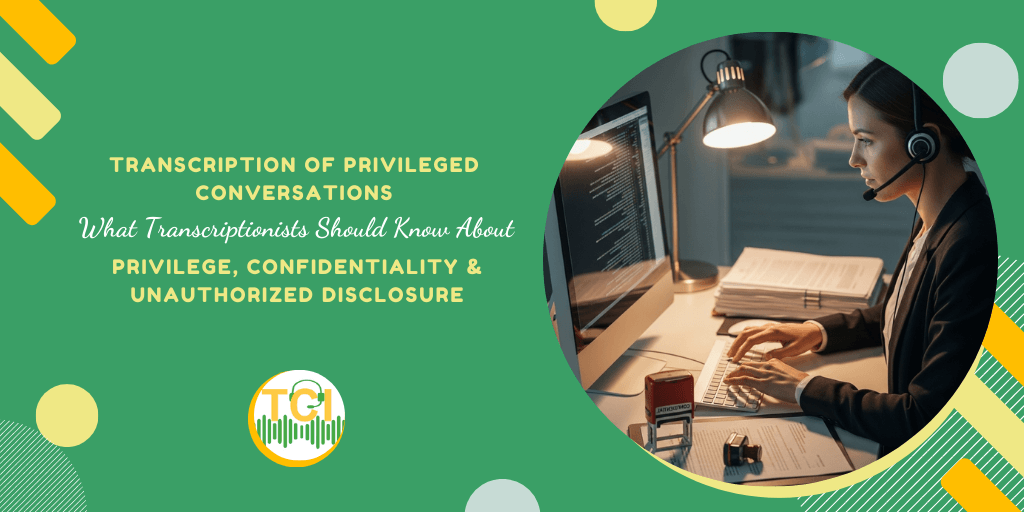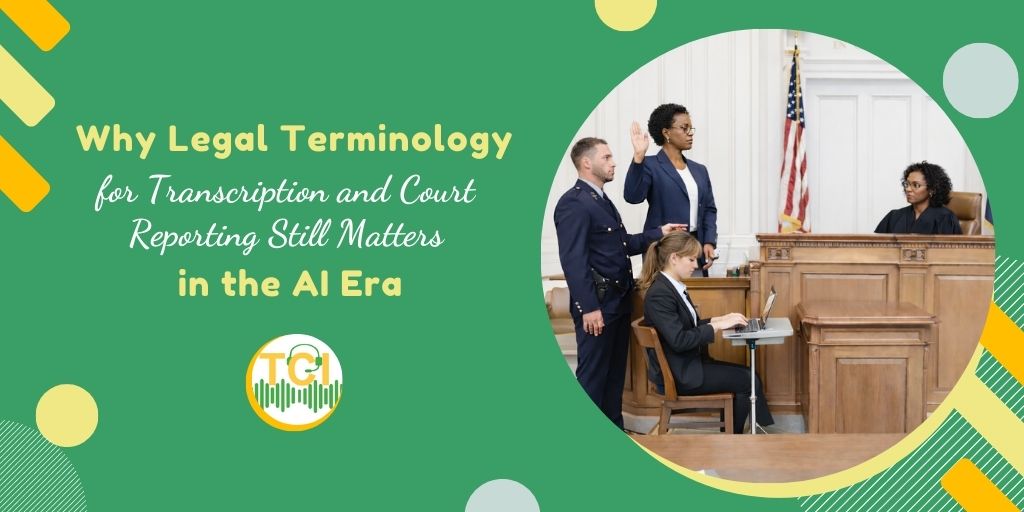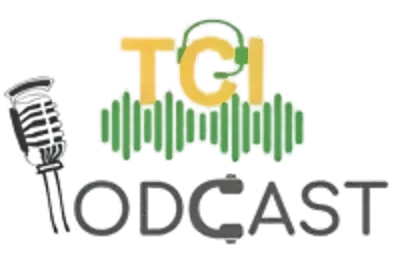 Blog Summary: Safeguarding Privileged Communications in Transcription
Blog Summary: Safeguarding Privileged Communications in Transcription
Transcriptionists working with legal, medical, or corporate content must uphold both privilege and confidentiality to protect sensitive information. Risks of unauthorized disclosure include legal consequences, professional liability, and loss of client trust. Following best practices like secure networks, encrypted files, controlled access, and clear client communication, along with strong ethical awareness, ensures that privileged communications remain protected and professional standards are maintained.
Transcription traditionally handles confidential information within legal, medical, corporate, or governmental settings. When conversations are privileged, transcriptionists bear grave ethical and legal obligations. Privilege and confidentiality serve to safeguard trust between parties, and mishandling documents can lead to liability, violation of trust, or litigation.
Issues Transcriptionists Should Bear in Mind
A privileged communication receives legal protection from disclosure without the consent of the parties concerned. The most common forms are:
- Attorney-client privilege: Protects communication between an attorney and his client so that confidential legal consultation is held in secret.
- Doctor-patient privilege: Protects sensitive medical information from disclosure, allowing patients to disclose everything freely to their doctors.
- Spousal privilege: Protects communication between spouses under certain legal situations, so confidential talks cannot be presented as evidence in court.
- Executive privilege: Offers protection for certain government communications from disclosure, most often to protect internal decision-making.
This is important to the transcriptionist because what they hear and transcribe are typically legally privileged. Mistakes in dealing with, communicating, or storing such documents have the unintended consequence of waiving privilege, which serves to defeat the protection meant to be in place.
The Role of Confidentiality
Whereas privilege is a matter of law, confidentiality is also an ethical and contractual one. Transcriptionists might well be bound by nondisclosure agreements (NDAs) or by some confidentiality terms in their contracts. Confidentiality guards against disclosure of the contents of a conversation, even if not legally privileged.
In modern times, confidentiality also includes being cognizant of secure practices, such as:
- Password-protected devices and files.
- Stored and transmitted data encryption.
- Avoiding using an unsecured network to open sensitive recordings.
- Refraining from discussing work with outsiders, even socially.
In today’s digital landscape, transcriptionists must maintain rigorous digital hygiene to protect sensitive content. Tools such as VPNs play a key role in reducing interception risks, and comparing options like Surfshark VPN vs. ExpressVPN can help professionals choose the solution that best safeguards their work and upholds confidentiality.
Risks of Unauthorized Disclosure
Unauthorized disclosure can occur in many forms. Unsanctioned disclosure can be intentional, such as releasing records, or unintentional, such as sending a transcript to the wrong individual or placing a file on a shared drive. Intentional or not, the consequences can be serious:
- Legal action: The employer or a transcriptionist may be sued or face regulatory penalties when privileged or confidential information is disclosed.
- Professional liability: Improper disclosure can lead to contract loss, loss of license (if so certified), and damage to the professional reputation of the transcriptionist.
- Loss of trust: Clients lose confidence in the transcription company or firm, which harms long-term business relationships and reduces future business opportunities.
Small errors, like forgetting to log off a shared workstation or sending unencrypted emails, can escalate to gigantic violations.
Secure Practices for Transcriptionists
Transcriptionists working on privileged conversations should adhere to the following best practices:
- Secure networks: Use a private internet connection and avoid public Wi-Fi in processing sensitive information.
- Data minimization: Keep only the files needed for the task and securely delete them once done, according to client specifications.
- File encryption: Sensitive transcripts should be encrypted while at rest and during transit. Thus, even if files get intercepted, they will not be available to unauthorized parties.
- Access control: Limit access to transcripts. Password protection and role-based access can reduce risk.
- Communication with clients: Communicate expectations in advance regarding delivery methods, file storage, and destruction policy.
By consistently following these procedures, transcriptionists can help ensure the confidentiality and integrity of privileged communications, protecting both their clients and themselves from professional risk.
Ethical Awareness and Professional Responsibility
Beyond the technical procedures, transcriptionists must also be extremely ethical. Charged with working on privileged conversations, they must realize that they hold – even if only temporarily – the highest level of extremely sensitive information. It is more than simply typing what one is hearing; it is safeguarding the dignity, privacy, and legal protections of the parties involved.
Ongoing training and education could allow transcriptionists to remain up to date on data security advances, evolving confidentiality standards, and best practices. Professional organizations offer many courses with guidelines for handling sensitive information, and compliance can reduce risk and aid credibility.
Conclusion
Transcription of privileged communication requires something more than simple language accuracy. It requires information security sensitivity and deep respect for confidentiality.
Privilege protects sensitive relationships in law, medicine, government, and business, and transcriptionists are on the ground of maintaining that protection. Unprivileged disclosure, whether inadvertent or deliberate, can lead to irreversible harm to all parties involved.
By adopting secure practices, understanding the distinction between privilege and confidentiality, and using high ethics, transcriptionists are able to perform their duties responsibly. Working in a world where digital risk is ubiquitous, their watchfulness serves to maintain confidence and prevent legal safeguards from being compromised.
 Blog Summary: Safeguarding Privileged Communications in Transcription
Blog Summary: Safeguarding Privileged Communications in Transcription















